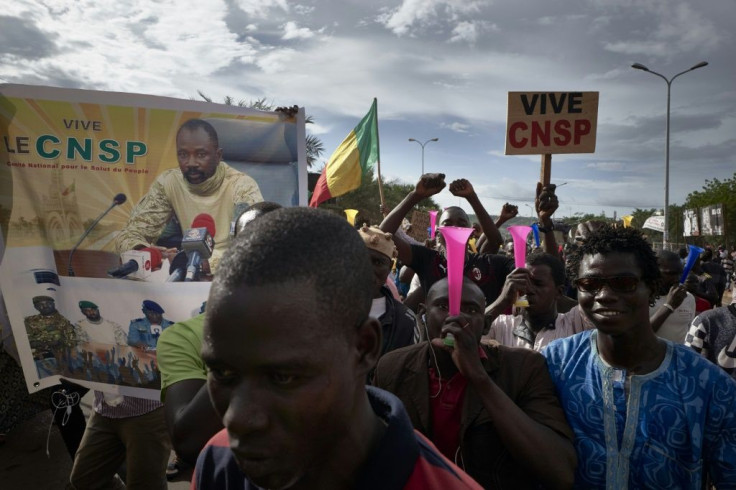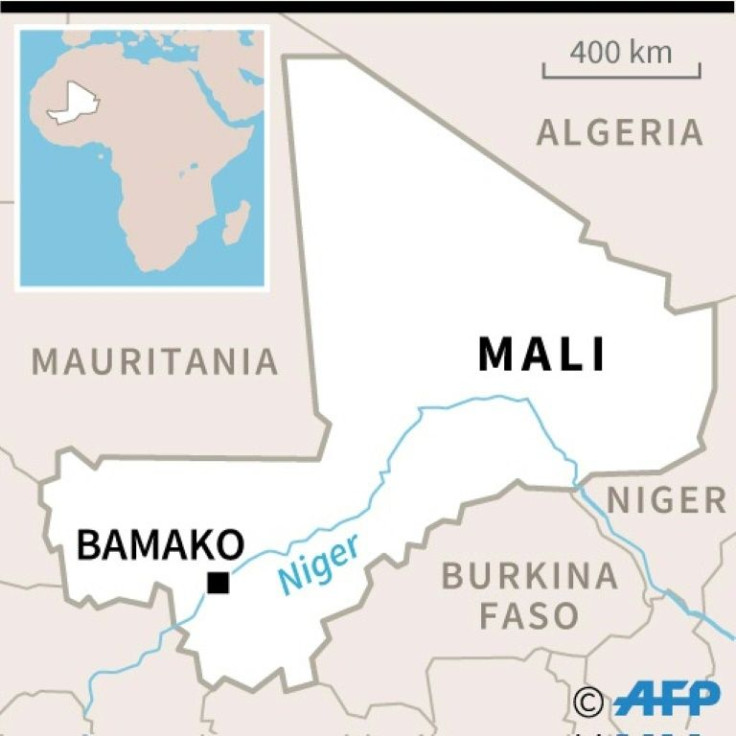Mali Junta Launches 'Consultation' Amid Pressure Over Handover

Mali's military junta on Thursday launched a three-day "national consultation" with political parties, unions and NGOs, facing questions at home and pressure from abroad over its plans for returning the country to civilian rule.
Around 500 people are attending the forum, unfolding at a conference centre in Bamako, the capital of the impoverished West African state.
The talks mark the second round of discussions between the young officers who overthrew President Ibrahim Boubacar Keita on August 18 and civilian representatives, many of whom had campaigned fiercely for him to resign.
At stake is how the junta intends to make good on its vow, made just hours after the coup, to restore civilian governance and stage elections within a "reasonable time".
At the opening of the talks, the normally spotlight-shy head of Mali's junta, Colonel Assimi Goita, underscored the importance of delivering "political and institutional reforms" and an outline for restoring a civilian government.
"We are condemned by future generations to succeed," he said.
But there were signs of discord as the forum got underway on Thursday, as police fired tear gas at youngsters who wanted to enter the premises.
Awa Diallo, a 22-year-old student, told AFP that the junta "must respect their promise and involve all Malians in the debates on the transition".
The Coordination of Azawad Movements (CMA), a mostly Tuareg alliance of armed rebel groups who launched a rebellion in 2012, also decided to boycott the talks on Saturday.
"Our concerns have not been taken into account," said Almou Ag Mohamed, who added that the ruling junta had cancelled a recently planned meeting with the CMA.
Officials attending the talks on Thursday also appear split on issues such as the length of a transition government, and on what role the military should play.
They separated into workshops to discuss broad themes, including constitutional reform, organising elections and safeguarding "national unity, democracy and peace," according to working documents seen by AFP.

The coup -- Mali's fourth since gaining independence from France in 1960 -- came after months of protests, stoked by Keita's failure to roll back a bloody jihadist insurgency and fix the country's many economic woes.
Mali's neighbours have watched with concern, fearing the country could spiral back into chaos -- a scenario that eight years ago helped fuel the jihadist revolt which now rattles Niger and Burkina Faso.
The junta initially talked of a three-year transition, corresponding to the time left in Keita's second five-year mandate, that would be overseen by a soldier.
In contrast, the 15-nation regional bloc ECOWAS has set a hard line, closing borders, banning trade with Mali and insisting that the handover last 12 months maximum.
In the runup to the talks, the group said Mali's civilian transition president and premier must be appointed no later than September 15.
The so-called June 5 Movement, which engineered the wave of anti-Keita protests, is deeply split.
Some voices argue in favour of giving the military a long handover in order to tackle the problems that have driven the country to the brink.
Others say that this would simply worsen instability -- four more Malian troops were killed in an attack on the eve of the talks -- and set a poor example for democracy in West Africa.
Mahmoud Dicko, an influential imam who is viewed as the figurehead of the June 5 Movement, pushed for civilian government in an interview on national television on Wednesday.
"We have nothing to gain by turning the international community against us," he said.
In a sign of the stark divisions, Dicko's spokesman Issa Kaou Djim said the June 5 Movement had "died a quiet death".
© Copyright AFP {{Year}}. All rights reserved.





















